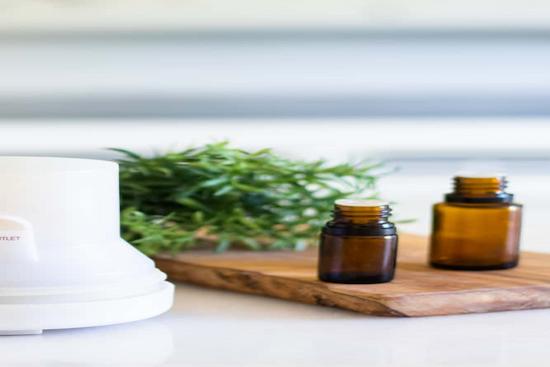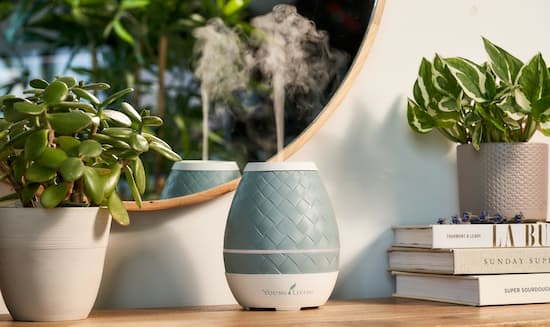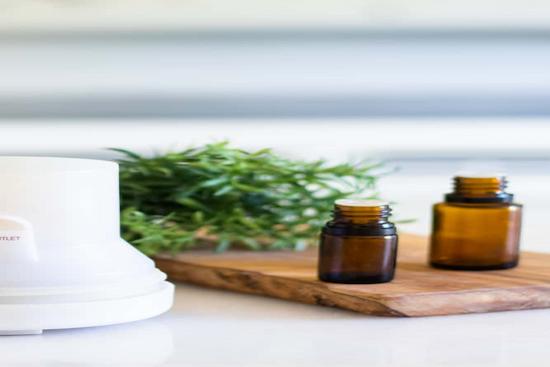Why can’t I smell my essential oil diffuser even though it’s been running for hours? You’re not alone! While using essential oil diffusers is a popular way to enjoy the therapeutic benefits, some people struggle to detect the scent they’re supposed to emit. In this article, we’ll explore some of the reasons why my diffuser doesn’t smell, and how to make diffusers smell stronger.

Reasons: Why doesn’t My Diffuser Smell
The satisfaction of aromatic treatments is frequently experienced by using essential oil diffusers. These devices can produce a calming, elevating, or energizing ambiance in your home or workplace by releasing essential oils into the air. However, if you can’t smell the diffuser, you may be missing out on its therapeutic effects. In this part, we’ll look at some typical causes of essential oil diffuser scent problems, as well as solutions.
Your diffuser isn’t working properly
The most obvious reason why you can’t smell diffuser is that it’s not working properly. This could be due to several factors, including a blocked or damaged nozzle, a defective motor, or an unreliable power source. Check the manufacturer’s instructions and confirm you’re using the diffuser properly to start troubleshooting the issue. If you have followed the directions but are still unable to smell the oils, consider thoroughly cleaning the diffuser and replacing any worn-out or damaged components, or look for ways on how to clean oil diffuser.

Your diffuser isn’t compatible with certain oils
Certain essential oils for diffuser are thicker or more potent than others, and not all essential oils are made equal. Your diffuser may not be able to handle certain types of essential oils depending on how it is made. For instance, heavy, resinous perfumes like frankincense or myrrh may not perform well in a diffuser that uses heat or ultrasonic technology.
Ultrasonic technology swiftly disperses a small amount of essential oil across a room, giving it a soft and moderate aroma. Citrus (such as sweet orange, tangerine, grapefruit, and lime) and conifer (such as pine, black spruce, and fir balsam) essential oils work best in this style of diffuser. If you can’t smell your oil diffuser’s scent, try using other kinds of oils to see whether they work better with your device.
Your essential oils are low-quality or expired
It’s also possible that the essential oils in your diffuser are of poor quality or expired, which would explain why you can’t smell them. If essential oils are not maintained properly, they may lose their efficacy or degrade over time.
Your room is too large or too drafty
Finally, it’s possible that if you’re using a small, inexpensive diffuser in a large or drafty room, the scent may dissipate quickly or not spread evenly.
You can try utilizing a bigger, stronger diffuser or strategically distributing several smaller diffusers across the space to get around this issue. Using a fan to better circulate the air or closing windows and doors to reduce drafts are other options.
How Long do Reed Diffusers last?
Using reed diffusers is a popular and simple way to create a lovely aroma in any area, they are long-lasting and require minimal maintenance. The quality of the diffuser, the kind of fragrance oil used, and the surroundings of the space can impact the effectiveness and longevity of the reed diffuser. Premium fragrance oil and a high-quality reed diffuser may often last two to three months. Some, though, can continue for six months or more.
Tips to Make Diffuser Smell Last Longer
Here are some tips to make your diffuser scent last longer:
- Choose fragrance oils of the best quality designed especially for diffusers.
- Put your diffuser somewhere cool and dry that is away from heat sources and the sun
- Utilize the right number of reeds for the size of the space, then change the number to control the scent’s intensity.
- To ensure that the oil is distributed equally, flip the reeds occasionally.
- Keep your diffuser away from air vents and places with excessive humidity.
- Once the oil has gone, apply a diffuser refill to restore the fragrance.
These suggestions will help you get the most out of your diffuser and enjoy a scent that lasts longer.

Conclusion
To answer the question, why can’t I smell my essential oil diffuser, there might be several reasons —– from mechanical problems to low-quality oils or room size. By addressing these issues and experimenting with different oils and diffusers, you can create a pleasant, relaxing atmosphere in your home or workspace. Of course, if you still can’t smell your diffuser after several attempts, you can also choose scented candles or plug-in air fresheners as good alternatives.
FAQ
It is advised to put 3–5 drops of essential oil per 100 ml of water in your diffuser. Using too many drops of essential oil in your diffuser can make the aroma overwhelming and possibly irritable to your senses. Always check the manufacturer’s instructions for the diffuser you have, since they can have suggestions for how many drops to use.
For the best effects, it is typically advised to use distilled or purified water. Here are a few explanations:
The pollutants or minerals in tap water may accumulate over time and clog your diffuser, reducing its efficacy. Chlorine and other contaminants in tap water may interact with essential oils to change their aroma or therapeutic effects.
As distilled or purified water is impurity-free, using it in your diffuser is a cleaner and safer option. Using distilled or purified water can also help to extend the life of your diffuser by reducing mineral buildup and preventing clogs.
If you decide to use tap water in your diffuser, be sure to replace the water after each use to stop bacterial development and clean the diffuser frequently to prevent buildup.
Diffusers can typically be left on for a few hours at a time but leaving them on all night is not advised. Diffusing essential oils for an extended amount of time can overstimulate the body, lead to headaches, and result in other major health issues. In addition, if a diffuser malfunction or is positioned next to flammable materials, leaving it on all night can provide a fire hazard.





